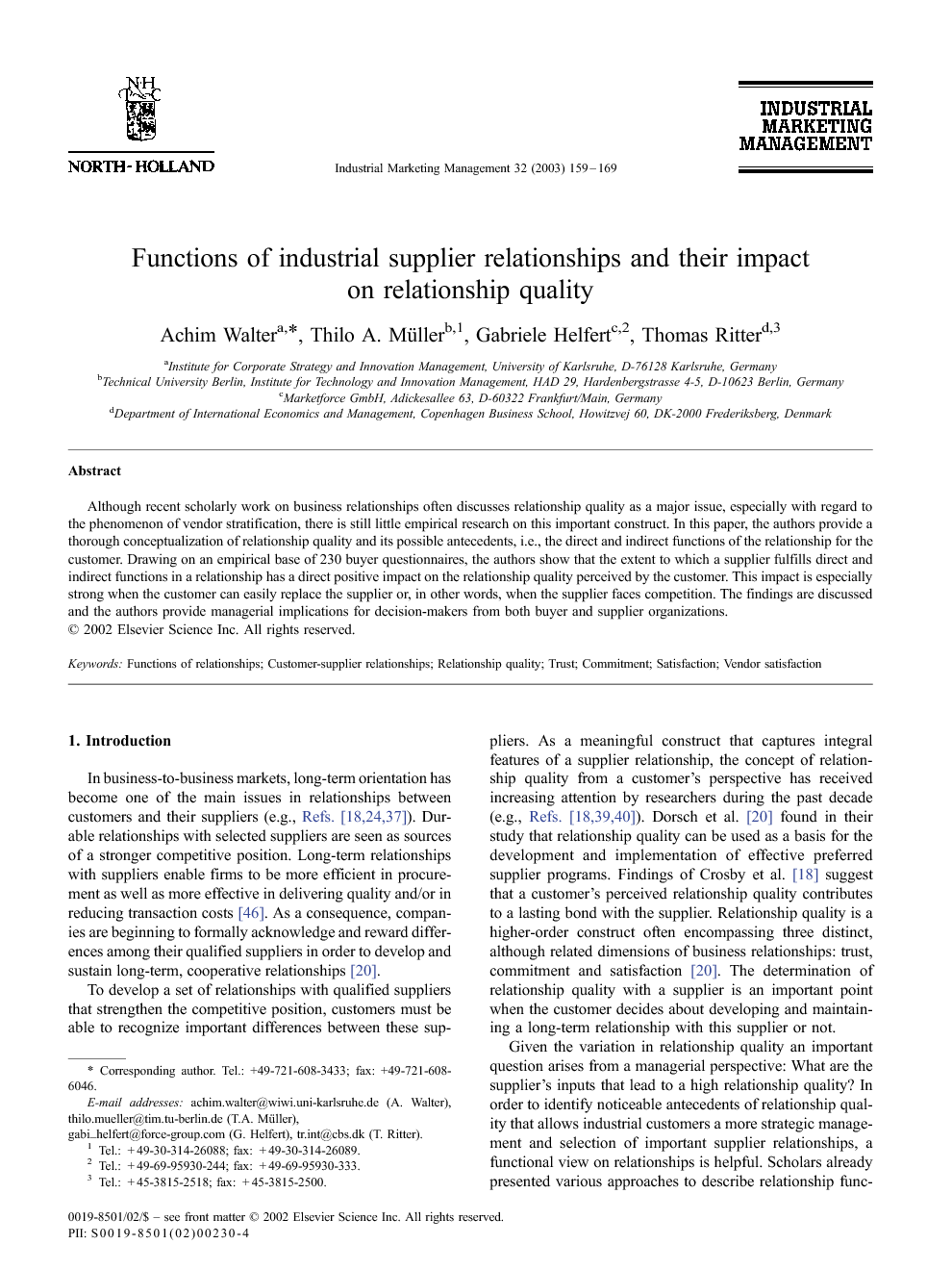ترجمه فارسی عنوان مقاله
توابع روابط تامین کنندگان صنعتی و تاثیر آنها بر کیفیت ارتباط
عنوان انگلیسی
Functions of industrial supplier relationships and their impact on relationship quality
| کد مقاله | سال انتشار | تعداد صفحات مقاله انگلیسی |
|---|---|---|
| 21096 | 2003 | 11 صفحه PDF |
منبع

Publisher : Elsevier - Science Direct (الزویر - ساینس دایرکت)
Journal : Industrial Marketing Management, Volume 32, Issue 2, February 2003, Pages 159–169
ترجمه کلمات کلیدی
توابع روابط -
روابط مشتری تامین کننده -
کیفیت رابطه -
اعتماد -
تعهد -
رضایت -
رضایت فروشنده
کلمات کلیدی انگلیسی
Functions of relationships,
Customer-supplier relationships,
Relationship quality,
Trust,
Commitment,
Satisfaction,
Vendor satisfaction,

